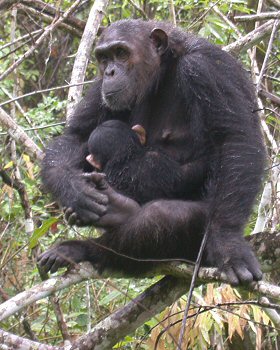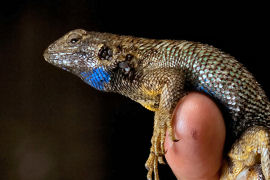
Building on earlier work that found evidence of human viruses in deceased chimpanzees, a new study by Virginia Tech researchers has confirmed that chimps in Tanzania’s Mahale Mountains are becoming sick from a variant of a human paramyxovirus. While the findings, reported in the American Journal of Primatology, demonstrate that the respiratory disease can spread from humans to chimps, the researchers are cautious about identifying the exact transmission route.
“Although evidence increasingly suggests that infectious diseases may be transmitted from research teams and eco-tourists to endangered great apes, we believe that this is still a bit of a leap and more research must be conducted in order to establish a comfortable level of proof,” said Virginia Tech’s Dr. Taranjit Kaur. Kaur has been unraveling the mystery in collaboration with scientists at the Centers for Disease Control and Prevention in Atlanta and researchers from Japan who are conducting behavioral studies on Mahale chimpanzees.
Kaur and her co-researchers have been living in western Tanzania on the shores of Lake Tanganyika, the second deepest lake in the world, as part of a broader research project that seeks to establish a long-term health-monitoring program for endangered great apes.
Related:
More Evidence Of Our Close Relationship With Chimps
Chimp Culture Human-Like
Missing Link A Tripping Chimp?


















Comments are closed.